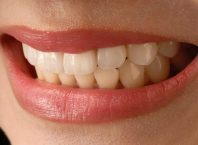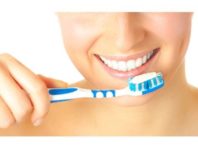Table of Contents
Teething babies need special attention. They are at a stage where emerging teeth can be uncomfortable, and sometimes painful, for them. Their gums may also become tender, or get swollen, due to the teeth breaking through the surface. During such time, you have to provide a good care to your baby to lay a good foundation for their dental health in future. Although these teeth are not permanent and will go away in a short time, they have a big effect on the baby’s gums and future teeth. For that reason, teething babies deserve a bit more of your time for maintaining their dental health.

Here are 7 tips for teething babies –
- Start cleaning baby’s mouth before teeth come in
Some parents wait for the teeth to come in to start dental hygiene for their babies. This is wrong as one should rather start cleaning their baby’s mouth before teeth come in. It’s advisable to clean the gums after each session of feeding to the child. For cleaning purpose, you should use a warm, wet washcloth as it keeps the required level of tenderness. Parents may also use a soft rubber device to rub foods off gum line or mouth. By not waiting for the teeth to come in, you can give a good care to your baby’s teeth.
- Massage sore gums
Teething babies are likely to experience a mild form of pain. This happens because the teeth will emerge through the gum causing some friction there. To effectively deal with the situation, parents should try to gently rub their tot’s gums with a clean finger to minimize pain. A soft cloth can also help in the task. You are also advised to apply slight pressure to the gums as this can reduce soreness. With little massage to the gums, you can ensure comfort to your baby and let them enjoy teething in the way it should.
- Give your baby a teething ring or toy
Teething often causes wail and pain for babies. The gums will be sore and little ones might feel irritable during this time. In such situations, children may want to chew on some soft object. This is when you can give them a teething ring or toy for chewing purpose. You should never freeze the ring, and focus should also be on avoiding the toxic chemical. If you go with liquid filled rings, there are chances of breakage and you should avoid that. Similarly, parents should stay clear of small pieces of rings else there will always be a choking risk to the baby.
Related:
An Essential Guide for Parents to OPT for Orthodontic Treatment for Kids
- Don’t relate teething to illness
Some parents make the mistake of relating teething to illness. They think that the teeth coming in cause fever, but that’s not correct. Teething may cause your baby to feel a bit tetchy or irritable but it never causes high fevers. Since teething is not a sickness, you should thus immediately consult a doctor if there are high fevers. When teeth break through, the body can adapt to it naturally and there are no major signs that babies experience during that time. So, if you find anything unusual, it’s better to see a dentist or a doctor and make the experience of your baby better.
- Look for signs of cavities
You’re wrong if you think babies are immune to cavities. Rather, they are virtually as much at risk as we adults are. So, you should keep checking signs of cavities to ensure optimum dental health to your little ones. Any sign of discoloration or minor pitting should never be avoided and you need to consult the dentist for that. To prevent the risk of cavities, you should stop putting your baby to bed with a bottle of milk. Such a bottle, especially with sugar content, can lead to cavity if held in the mouth for longer periods of time.
- Manage your Baby’s Fluoride Intake
We know adults should use only a fluoride-containing toothpaste for healthy and disease-free teeth. What we may not know that babies too need that mineral although in little amount for the same set of benefits. This is how tooth decay can be prevented and risks of cavities minimized. However, you should not use the same toothpaste for babies what you use for yourself. Rather, you should consult the dentist or doctor and ask for some other fluoride supplements. There are many products available in the market that can complete the required fluoride intake in babies.
- Schedule a dental exam
Any baby at age one is fit enough to visit the dentist. In fact, dental visits become important as soon as the first tooth comes in. Teething is a sensitive time when parents may have lots of doubts and questions which they can solve by visit a dentist or oral surgeon Astoria. This will help a lot in maintaining oral health of your child.
Author Bio:-
Praveen Singh is a writer and blogger, and a professional interested in sharing interesting ideas with the world. His blogs give a peek into things that aim to inform, enrich and entertain the readers. He loves sharing views on anything that provides value to the readers and helps broaden their horizon.















